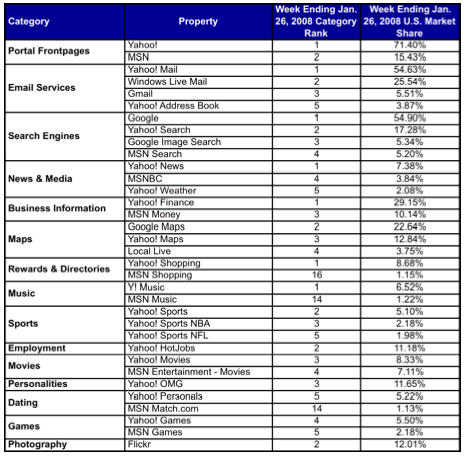Memo to Jerry Yang: Talk to Ray

John Markoff brings some historical perspective in analyzing the viability of the Microsoft-Yahoo deal. In his New York Times piece, he wrote:
No one really knows, of course, but gambling on the future is the essence of Silicon Valley. Everyone chases the next big thing, knowing it could very well be the wrong thing. And those who guess wrong risk their survival.
That is why, in this silicon-centric economy, front-runners do not stay front-runners for long.
Many big names of the 1980s — Commodore, Tandem, Digital Equipment and MicroPro — are in a graveyard shared by the highfliers of the 1990s — the At Home Network, Netscape and Infoseek, to name a few.
Now Yahoo, founded by Stanford graduate students who became media darlings and instant billionaires after an exhilarating initial public offering of stock, may be the next to disappear.
"Disappear" would be the wrong outcome for this deal. Joining up with Microsoft, which has been a front runner for nearly three decades, could mean that Yahoo Life will be retooled as Yahoo Live, Microsoft's way of distinguishing its hoped for future from the past. I don't think Microsoft would ignore the fact that Yahoo's brand and services have attracted half a billion users and lead in many categories.
Bill Trancer of Hitwise lays out how Yahoo and Microsoft stack up in key categories in percentage of visits among U.S. Internet users:
Combining to increase market share and leverage synergies in competing with Google in search and ads is a no brainer. Microsoft has been cranking out PowerPoints and Excel spreadsheets on such an anti-Google acquisition for at least a year and a half.
Microsoft understands, as it did with the browser once it woke up to the Internet, that is must at least be a strong number two if not number one in search and ads. Stop Google's search momentum or lose out on the most efficient and profitable way to make money in the technology industry.
Markoff characterized the union driven by search revenues as Microsoft possibly "firing the final shot of yesterday’s war."
That may true as it relates to search and ads but tomorrow's war revolves around Microsoft's staring into a Windows void.
The Windows client operating system will be less relevant in a cloud-based world, and Microsoft Office and other business applications will have to move deeper into the cloud, where subscriptions and ads rule, not the packaged software business where Microsoft has gained extreme dominance and billions in annual revenue.
At this juncture, Microsoft isn't suffering much from GMail or Google Docs & Spreadsheets, or other challengers to its application dominance, but the battleground is shifting and the men and women of Redmond are very aware of that fact.
This is where Yahoo's services and applications comes into play. I agree with Tim O'Reilly that Microsoft and Yahoo could have an opportunity to create the next generation desktop, or Webtop.
If Microsoft does consummate this merger (and I understand from the scuttlebutt that Yahoo! does consider it a hostile takeover), the surest way NOT to profit from it is by focusing on the areas where Google is already the strongest. Microsoft needs to invest in the future of applications where Microsoft and Yahoo! are strongest, and where there is significant opportunity for innovation. Email and other messaging platforms meet these criteria.
At CES, Jerry Yang offered a glimpse of that Webtop, dubbed Yahoo Life, that integrates email, structured data, social context, tags and a variety of other applications. Yahoo Life is more concept than product today, but you can see where Yahoo is heading.
In a press release, Microsoft Chief Software Architect Ray Ozzie gave his reasons for making the acquisition:
Our lives, our businesses, and even our society have been progressively transformed by the Web, and Yahoo! has played a pioneering role by building compelling, high-scale services and infrastructure. The combination of these two great teams would enable us to jointly deliver a broad range of new experiences to our customers that neither of us would have achieved on our own.
It is a wordsmithed press release, but Ozzie's role is to create new user experiences, or scenarios, that bridge the pre- and post-Internet Microsofts. The key for Microsoft, and its competitors, is creating the next generation Webtop, applications and business models.
Acquiring Yahoo would certainly bring market share and some operational efficiencies, but it's not clear if the one plus one equals three in delivering "broad range of new experiences" that neither company would have achieved on their own.
If the two were able to accomplish more together in defining and delivering the next-generation "Live" Web user experience for billions of users, then it's a clear reason to consummate the deal beyond ganging up on Google. But, that is a big "if."
Memo to Jerry Yang: Talk to Ray.
